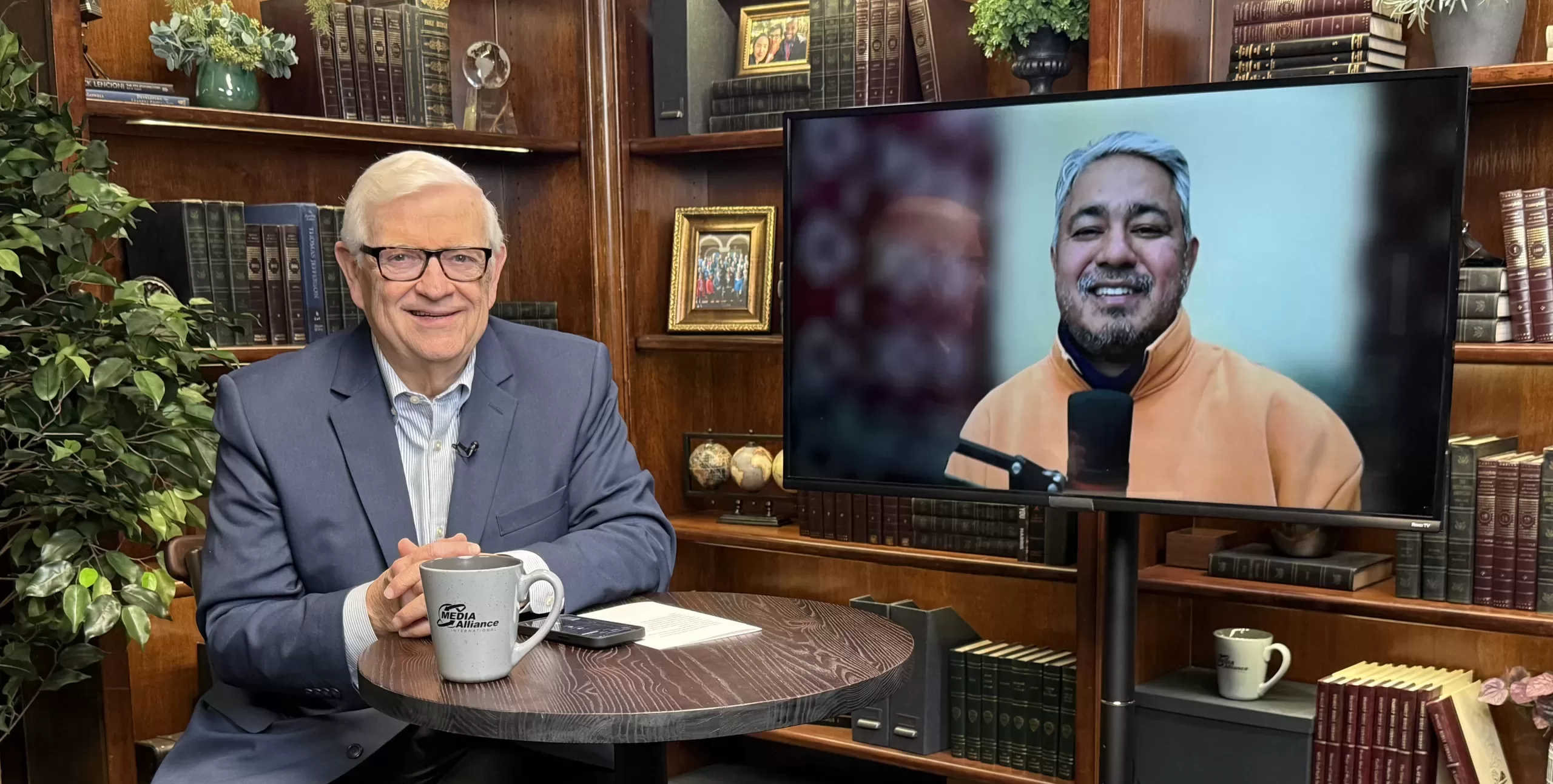Getting things done
As you look around at other leaders you know, are there some you would identify as high performers? It seems some consistently get things done, and those key things are usually done well. Are you one of those people?
I was intrigued by an article I recently read by a leadership coach in the Netherlands. The article outlined the signs of a high performer, and you may be surprised by some of those traits.
- You enjoy learning – you are naturally curious.
- You love to simplify explanations – you make learning accessible and engaging.
- You are happy not following the herd – you don’t mind going against popular opinions.
- You are okay not knowing everything – you view gaps in knowledge as opportunities.
- You prioritize quality over quantity – you value excellence over speed or volume.
- You stay calm under pressure – you are confident even in the most chaotic moments.
- You lift others up – you believe in shared success.
Can you identify with those traits and leadership qualities? The brilliant Albert Einstein is quoted as saying, “Wisdom is not a product of schooling but of the lifelong attempt to acquire it.” And the legendary U. S. basketball coach, John Wooden, motivated his players with these words:
“It’s what you learn after you know it all that counts.”
The last point on that list is critical. Encourage others. Lift them up. It is amazing what a word of encouragement means to your team, both personally and for accomplishing God’s plan in your ministry and organization. The Apostle Paul recognized and praised that trait in the believers in Thessalonica:
So encourage each other and build each other up, just as you are already doing.
1 Thessalonians 5:11 NLT
If you identify with traits like these, what does it mean? It means the Lord has built into you the qualities that will help you lead others to accomplish His will, and do it His way.
This may be a good time to say it is more important to recognize how God has made you than it is to look at others and compare yourself or your accomplishments. Certainly, it is not productive to rank yourself against others and what they accomplish. When Paul recognized some in Corinth who were bragging about “their” abilities, he not so gently reminded them of an important point in our spiritual lives.
What do you have that God hasn’t given you? And if everything you have is from God, why boast as though it were not a gift?
1 Corinthians 4:7 NLT
Yes, we all can improve our abilities to the glory of God. And we can learn how to better serve Him with what we have. Let’s be careful to recognize three things:
- Anything and everything we have…skills, personal qualities, wisdom…is a gift from God
- Any position we attain in ministry is by God’s grace and His design.
- The Lord intends us to use all He has placed in our hands for His purpose, to point others to Jesus.
That’s a purpose worth working toward every day in every way.
God’s best,
Stretched or useless
You probably have a drawer like I do at our house. Most folks do. Some simply call it a junk drawer. Yet we don’t want to throw the stuff in that drawer out.
Ours has clips for bags of chips. It has those little twisty ties that come on bread and other packages. And, among a few other things, it has rubber bands. Several of them.
Leadership expert John Maxwell made an interesting observation about rubber bands. He pointed out that these little rubber items are useless unless they are stretched. That makes sense. We grab one of those little bands and wrap it around something that needs to come together—to close off something or to gather groups of things like pencils, pens, or other rubber bands.
Maxwell’s point is this. As leaders, we are called to action when things need to get done. Leaders are often stretched in the process of bringing different people together and in the process of getting closure to sticky problems.
Leaders generally face these kinds of problems. Christian leaders have a resource others don’t have. We find a clue in God’s Word.
Don’t worry about anything; instead, pray about everything. Tell God what you need, and thank him for all he has done.
Philippians 4:6 NLT
As leaders, there are lots of good ideas for how to deal with the challenges. The Lord supplies His followers with God’s ideas.
In fact, the Bible implores us to move away from our human thinking and put our complete trust in the Lord for every area of our lives and our leadership.
Trust in the Lord with all your heart;
do not depend on your own understanding.
Seek his will in all you do,
and he will show you which path to take.
Proverbs 3:5-6 NLT
Stretched. Yes. Sometimes to the point where we think we may break. But that should not make us reluctant to lead. Remember the rubber band. It is of little use unless it is stretched. God’s Word repeatedly gives us both direction and comfort for those who serve Him. Consider these passages:
Casting all your anxieties on him, because he cares for you.
1 Peter 5:7 ESV
For nothing will be impossible with God.
Luke 1:37 ESV
In another era, a new leader no doubt felt stretched. Joshua was following a great leader who was noted as a friend of God. It would have been easy to feel overwhelmed. However, the Lord had a direct command for Joshua that can serve us today, too.
…be strong and courageous! Do not be afraid or discouraged. For the Lord your God is with you wherever you go.
Joshua 1:9 NLT
Have you been stretched recently? Remember, the challenges you face are what you are called to face. God is not surprised by these challenges. And He has provided wisdom and strength to face them. Under the direction of the Holy Spirit, Paul wrote:
We are pressed on every side by troubles, but we are not crushed. We are perplexed, but not driven to despair.
2 Corinthians 4:8 NLT
So, as John Maxwell said, realize that, like those rubber bands in that junk drawer, being stretched is what you are designed to do, for God’s purpose and for your good.
God’s best,
New Opportunities in Jordan
Some call it “The Other Biblical Land.” Jordan—a nation of over eleven million people bordering Israel, Saudi Arabia, Iraq, and Syria—is home to several significant biblical sites, including Mount Nebo, Moab, and the Jordan River, where Jesus was baptized by John the Baptist.
Yet, despite its deep biblical history, Jordan’s Christian population is small, making up just 0.2% of the total. Still, God has His people there, actively sharing His love and hope. Now, MEDIA Alliance has the opportunity to equip these dedicated Christ-followers with powerful media tools to impact Jordan with God’s truth.
Starting in March, our team will assess needs and provide training in effective media use to help ministries reach more people with the message of Christ. We are praying for productive days as we empower local leaders with new strategies to share God’s Word.
Dr. Nabeeh Abbassi and his wife, Ruba, have led ministries and churches in Jordan for over thirty years. Dr. Abbassi holds key leadership roles among Baptists and other evangelicals, serving as pastor of the Arabic Baptist Church. Ruba leads Arab Women Today, a ministry dedicated to uplifting women in Jordan while sharing Christian principles.
With your prayers and support, MEDIA Alliance can help expand their ministry’s reach across the Arab world.
Doors are also opening in other parts of the world. We are scheduled to be part of a conference in Malaysia in August, and we are in discussion with a pastor in Kathmandu, Nepal, about a potential conference in that Asia country. Evangelicals make up less than three percent of the 31 million people, yet the indigenous church is growing. There is an anti-conversion law in Nepal, but ministries are being creative in ways of sharing the Gospel. Our hope is to assist churches, Christian radio, and other Christian ministries as they use media to extend God’s hope and His love to the people of Nepal.
Will you join us in this global mission? Your financial support will help us partner with courageous leaders serving in difficult places, and your prayers will provide the spiritual strength so essential to our work.
I finally get it...
I’m in my late 70s, and I’m still learning and figuring things out. Better late than never.
As a kid, I remember asking my dad about a deep scratch or bruise on his arm. “Where did that come from?” Dad would simply reply, “I don’t know.” I couldn’t believe it! How could you scratch your arm or run into something and not remember the incident? That was beyond my comprehension as a young boy.
I’m beginning to understand. While getting dressed recently, I noticed a couple of scratches on one leg and a bruise on the other. I have no idea where they came from. I flashed back to my time with Dad and understood he was teaching me without lecturing me. Without specific words, Dad said, “It doesn’t matter. It’s not worth worrying about or spending time thinking about.”
I’m finding a lot of applications for that lesson beyond scratches or bruises. There are many things that happen in life that we sometimes spend way too much time thinking about…or obsessing over. We try to find the cause of this little thing or the reason for that little thing. Or we assign some sort of spiritual application to it as a way of explaining it. Flip Wilson was an American comedian famous for saying, “The Devil made me do it.” Pardon the pun, but that was his “flip” answer for why some things happened.
As a leader, you encounter many things each day that could command your attention at home or at your office or ministry. And many of those things won’t matter. Don’t waste valuable time on trivial things that can detract from the important things of your ministry, your work, your family, or your life.
The Apostle Paul often encourages us to focus on the important. After admitting to the Philippian Christ-followers that he didn’t fully comprehend everything, Paul said this:
…but I focus on this one thing: Forgetting the past and looking forward to what lies ahead, I press on to reach the end of the race and receive the heavenly prize for which God, through Christ Jesus, is calling us.
Philippians 3:13-14 NLT
My translation of that is, “Quit worrying about the little things or the past things. You’re probably not going to figure them all out, anyway. Look forward. See the goal God has set before you…and press on to that. There is a greater reward than figuring out…where that little scratch came from.”
God’s best,
God at work in Nepal
A few weeks ago while in India I met a man from Nepal named Heman Rai. While it’s challenging to share hope in Jesus in the country of Nepal, Heman uses video interviews to share the good work that Christians are doing in his country.
The innovation of God’s amazing media workers continues to amaze me, and it’s our joy to come alongside and encourage leaders like Heman.
Please take a few minutes to see how God is at work in Nepal through Heman and the ministry of Awakening Media.
Thank you for being a blessing,
Are you on a difficult road?
Early in our marriage, my wife Judy would accuse me of purposely hunting for challenging roads. When we were living in another country, I would sometimes see something off in the distance where I wanted to go…and I would just take off heading that way. Even if there wasn’t a good road. Sometimes where there wasn’t any road. To me, it was all about the destination. Seeing something I had never seen before. And most of the time, we were rewarded with something astounding. Has that happened to you?
I had the privilege of getting to know Zig Ziglar, a noted salesman, motivational speaker, and author. And the other day I came across a quote that certainly resonated with me…especially after all the rugged roads I have taken in life. Zig said:
“Difficult roads often lead to beautiful destinations.
The best is yet to come.”
I quickly thought of those many times I headed up mountain roads or across rocky fields and was rewarded with amazing vistas and astounding sights. Of course, not every rough road took us to a great place. There were a lot of U-turns along the way.
Zig Ziglar was talking about more than sightseeing on a vacation. He was teaching life lessons. Reminding us of our Sovereign Lord and how He works in our lives.
Ministry leaders often find themselves on a difficult road. Financial challenges. Personnel issues. Pressure from without and within. It can get rough and seem like we have taken a wrong turn onto a rough road.
Zig Ziglar would often remind people, “There is no elevator to success. You have to take the stairs.”
God’s Word reminds us to persevere even in the midst of trials…or those boulders on our road. The writer of Hebrews gave us this admonition:
For you have need of endurance, so that when you have done the will of God you may receive what is promised.
Hebrews 10:36 ESV
Peter wanted his readers to understand that there will be times when patient endurance will be needed.
Dear friends, don’t be surprised at the fiery trials you are going through, as if something strange were happening to you.
1 Peter 4:12 NLT
Paul also wanted the early Christians to expect rough roads, trials. The apostle encouraged them not to give up or turn back. And on God’s authority, Paul promised them…
At just the right time we will reap a harvest of blessing if we don’t give up.
Galatians 6:9 NLT
Are you on a rough road now? Are the trials and challenges tempting you to turn back? That beautiful destination…God’s reward… may be just around the corner. Yes, the best is yet to come.
God’s best,
Fight or flight...
Leaders have to deal with conflict in their organizations. It is inevitable. Jesus said, “Here on earth you will have many trials and sorrows….” (Matthew 16:33 NLT) James reminds believers, “Dear brothers and sisters, when troubles of any kind come your way, consider it an opportunity for great joy.” (James 1:2 NLT)
In the middle of conflict, it doesn’t feel like joy. What is your attitude when those troubles come in your ministry or organization? Joy is probably not the first thing on your mind. Most people think their only options are fight or flight and confront the trial head-on. Of course, when that happens, there will be inevitable winners and losers. That doesn’t make for a productive organization or ministry. What if there were another way?
What if you could transform that conflict into something productive for everyone? David Ashcraft of the Global Leadership Network suggests that can happen if we look at conflict differently.
“Conflict isn’t bad; it’s necessary. It’s usually a reaction to something that needs to be fixed, something that is probably holding your team back from moving toward your mission…. we as leaders must put aside both our desire for ease and our desire to be right — and instead choose to lean into conflict.”
Leadership expert John Maxwell has gone so far as to develop a Ten Commandments of Handling Conflict. Here are some of the highlights:
- Love people more than opinions.
- Learn to be flexible.
- Provide an escape hatch for the other person in the conflict.
- Don’t become defensive.
- Welcome the conflict.
That last one is hard. I sure don’t wake up in the morning hoping for a conflict. Usually, it is just the opposite. So, how do we welcome conflict? Maxwell expands on that thought:
“In spite of our best efforts, we will all have conflict with other people, because they’re not just like us. They have different personalities, beliefs, and desires, so there will be disagreements and misunderstandings. Rather than running from conflict, or reacting with horror when it comes up, focus on resolving it together and making it a learning experience. It’s been said that conflict can give you either ulcers or understanding.”
Often, we as leaders must check our attitude. Are we more interested in winning or moving forward as an organization? Are we more focused on our leadership position or on the overall good of the ministry?
Kenneth Cloke, a professional mediator, has written, “Every conflict we face in life is rich with positive and negative potential…. The choice is not up to our opponents, but to us, and our willingness to face and work through them.”
Conflicts will certainly arise. Rather than fight or flight, we should work to transform the conflict into something that honors the Lord and moves us closer to His ministry purpose.
God’s best,
Old...but still useful.
I love pulling one of my old media books from many decades ago to see how the information relates to today’s tools and technology. To be honest, it doesn’t always hold up. Equipment has changed so much, and the way production work is done is dramatically different. Yet, some truths remain. In the opening pages of a classic academic book, Television Production by Alan Wurtzel, the author verbalizes the truth that still holds today.
“In order to communicate effectively in any medium, it is essential to first understand the capabilities and limitations of both the medium and its tools and techniques.”
Wurtzel adds that all of that is a part of the critical process “… to produce programming which will communicate messages and ideas to the viewing audience.”
For those of us in the media realm, we cannot overlook the potential and the limitations that our tools afford us. As new technologies evolve…which seems to happen weekly if not daily…we may need to evaluate those tools again and again.
- What are the limitations?
- Can we get around such limitations?
- What can we do with what we have today?
- How can we stretch our potential?
I’ve always seen the limitations in media work as a challenge. Before TV broadcasting had stereo capabilities, I led our church media teams to use local FM radio stations to carry the stereo audio of the church’s televised musical specials, a simulcast. Voilà. Stereo television! This not only overcame technical limitations, it also provided a unique experience for those who viewed the program.
Working in Christian media gives us an advantage the secular media world does not have. We do what we do to honor and bring glory to our Lord. And He has assured us our imagination is not big enough for what the Lord wants to accomplish through us. That is a promise from Almighty God.
“Now all glory to God, who is able, through his mighty power at work within us, to accomplish infinitely more than we might ask or think.”
Ephesians 3:20 NLT
Eugene Peterson in The Message, his paraphrase of the Bible, says, “God can do anything, you know—far more than you could ever imagine or guess or request in your wildest dreams!”
Alan Wurtzel talked about communicating messages and ideas to the audience. God’s purpose takes that much further. We are not just taking a message or an idea to the audience. We have the privilege of taking God’s most powerful message and sharing it in unique and effective ways with the audience. And it isn’t just to be entertained or enlightened. Our use of today’s media tools is to see God make an eternal difference for all who hear and accept His Son, Jesus, as their Lord.
Yes, know your tools, their limitations, and their potential. And be sure their potential includes all God wants to accomplish through you and what He has put in your hands. Remember, Moses only had a stick, a shepherd’s rod. God did far more with it than anyone ever imagined.
What does the Lord want to do through you?
God’s best,
Are you a leader or a manager?
There is a difference between leading and managing. Peter Drucker, the father of modern management, defined the difference this way: “Managers focus on doing things right, while a leader focuses on doing the right things.” Drucker also made another distinction that leaders should understand: “Efficiency is doing things right; effectiveness is doing the right things.”
Which one is better, the leader or the manager? Both! The key is knowing your ability and knowing your role. It is rare to find someone who can both lead and manage.
Fred Smith, a leader of many in business and ministry, once gave examples of U.S. presidents who were either a good leader or a good manager. Then Smith explained:
“Even if a leader is not strong in administration, he/she must recognize the crucial value of these skills. Bringing top-notch administrative skills to the team is critical, whether it is leading a country or an organization.”
Our friend Steve Gutzler identified some pillars of effective leadership. Here are some of the key pillars he listed:
- A sense of calling
- Visionary thinking
- Personal drive and energy
- Active listening
Fred Smith’s daughter, Brenda, keeps Fred’s legacy and his wisdom alive through the “Breakfast with Fred” website and blogs. She poses three questions for leaders to consider as they develop their leadership skills:
- Am I more gifted in leadership or management?
- How am I developing my skills and contributing to my organization?
- Who could I help with the distinction between leadership and management?
The writer of Hebrews instructed his readers to consider those who had led them and seek to live according to their lives.
Remember your leaders who taught you the word of God. Think of all the good that has come from their lives, and follow the example of their faith. Hebrews 13:7 NLT
Fred Smith concluded his thought by saying, “A successful organization has leadership and management. You lead people, but you manage work.”
As we launch out into a new year, it is good to know how the Lord has gifted you. And to understand how you can best lead your organization, ministry, or your family in God’s ways to accomplish the Lord’s purpose.
God’s best,
The road ahead...
No better time to take stock in life than at the close of one year and the launch of another. It’s an excellent time to reflect on past blessings (or challenges) and future hopes and dreams. That’s true if you are 29 or 79. Believe me, I know!
Mike Huckabee is a well-known figure in America. Having run for President twice, Mike has gained notoriety for his wit and insight. I have had the joy of knowing Mike for over 40 years and have watched his amazing influence. From media professional to seminary student, pastor to state governor, and candidate for President of the United States, he has hosted national radio and television programs. All the while, I have seen the same foundation and faith that was instilled in his life at an early age.
A few years ago, Mike and I were together at a ministry dinner, and I was reminded of how the Lord is using him to influence and impact lives. One of his books is titled Rare, Medium, or Done Well. In it, he reflects on how our past and present decisions and choices shape our lives for today and tomorrow. As a result, we influence others—for good or bad.
Huckabee points this out in a strong way in his book:
“Even though we don’t choose how we start life or how we end it, we most certainly choose how we live it.”
“The real legacy of life cannot be calculated by an army of accountants. The value of one’s life is seen in the character of those whose lives were touched, whether children, extended family members, or even strangers who benefited in some way from a person’s influence.”
George Herbert Walker Bush was the 41st President of the United States, serving one term from 1989 to 1993. He was defeated for a second term. But his influence was the result of the choices he made early in life to love people, serve his country, live a life of deep faith, and lead with both strength and compassion. At the same time, George H. W. Bush poured out unconditional love on his wife and children. His son, George W. Bush, who followed him a few years later as President, eulogized his dad at his funeral service and, through tears, concluded with these words to his father:
“We’re going to miss you. Your decency, sincerity, and kind soul will stay with us forever. So, through our tears, let us know the blessings of knowing and loving you, a great and noble man, the best father a son or daughter can have.”
Legacy. A life done well.
What are the foundational principles of your life? What are the choices you are making that will build up others and help them along life’s pathway? How are you modeling the principles you proclaim in ministry and life?
Today is a good day to reflect on past blessings…and even past mistakes. Yes, mistakes. Failures and mistakes are part of life. But they don’t have to define us. There is no leader in all of God’s Word who lived a perfect life…except Jesus. Yet, with the power of God’s Spirit, leaders like David, Moses, Paul, Peter, and many others left a legacy of influence that impacts our lives today. What impact will your life have?
In addition to leaving a powerful and positive legacy, also long for those words from our Heavenly Father…
“Well done, good and faithful servant.”
Happy New Year from your MEDIA Alliance family.
God’s best,














